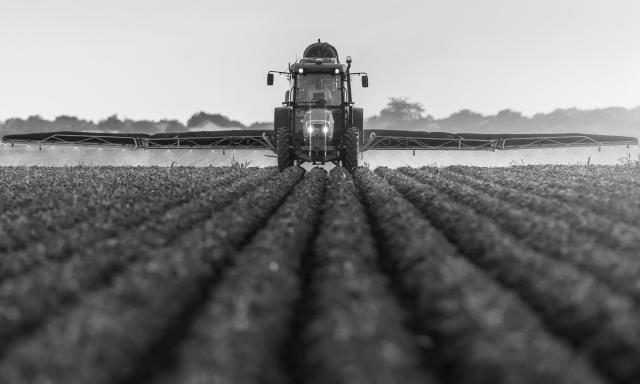

 Article
Article

 Becky Duff discusses the largest sources of GHG emissions – livestock farming and soil management – and explores the best practices and technologies that support carbon-smart farming. She also discusses the levers and opportunities in more detail with Darden Professor Mike Lenox.
Becky Duff discusses the largest sources of GHG emissions – livestock farming and soil management – and explores the best practices and technologies that support carbon-smart farming. She also discusses the levers and opportunities in more detail with Darden Professor Mike Lenox.

Insights from
Written by
In the 2015 Paris Agreement, 175 countries pledged to take action to limit global warming to no more than two degrees Celsius above preindustrial levels in order to avoid insurmountable global disruption. A recent report in Science Advances suggest that limiting the increase to 1.5% could result in significantly fewer heat-related deaths in U.S. cities. Getting there won’t be easy, and will require near total decarbonization of economic activity by 2060.
Agriculture accounts for a significant amount of greenhouse gas emissions worldwide and is also the one sector being hit the hardest by a changing climate. As the global population continues to grow — an additional 2 billion people predicted by 2050 — industry stakeholders are working diligently on technology solutions that will increase productivity while reducing carbon footprint.
In the podcast, Becky Duff, senior research associate for the Business Innovation and Climate Change Initiative at the Batten Institute for Entrepreneurship and Innovation, takes a closer look at the two largest sources of greenhouse gas emissions — livestock farming and soil management – and explores the best practices and technologies that support carbon-smart farming. Duff then discuss the levers and opportunities in more detail with Darden Professor Mike Lenox, who is a co-author of the report Path to 2060: Decarbonizing the Agriculture Industry.
This is the fourth in a series of podcasts related to the topic. Episodes 5, 7, and 10 discussed the decarbonization of automobiles, electric utilities and industrials.
Lenox’s expertise is in the domain of technology strategy and policy. He studies the role of innovation in helping a business succeed. In particular, he explores the sourcing of external knowledge by firms and this practice’s impact on a company’s innovation strategy. Lenox has a longstanding interest in the interface between business strategy and public policy as it relates to the natural environment; his work explores firm strategies and nontraditional public policies that have the potential to drive green innovation and entrepreneurship.
In 2013, Lenox co-authored The Strategist’s Toolkit with Darden Professor Jared Harris. His latest book,
Lenox is a prolific author; his most recent book, Strategy in the Digital Age: Mastering Digital Transformation, examines how digital technologies and services enable the creation of innovative products and services, as well as identifying new competitive positions.
B.S., M.S., University of Virginia; Ph.D., Massachusetts Institute of Technology
Feeding a Growing Planet in a Warming Age: Decarbonizing the Agriculture Industry